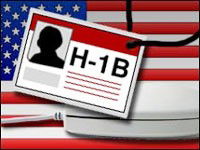Headlines
Lawsuit challenges the USCIS order restricting H1-B visa holders working at third party sites

A major lawsuit has been filed in the US District Court in Newark, New Jersey, against the United States Immigration Service (USCIS) challenging its recent changes in policies and regulations that made it almost impossible for the U.S. companies to sponsor for H-1B workers.
The lawsuit notes that the USCIS has overstepped its powers. The USCIS has imposed severe restrictions on assigning H1-B workers to third party worksites affecting employers as well as employees badly. Thomas Vinu Allen, the attorney representing the plaintiffs, said that only the Congress has the power to pass such regulations and USCIS actions are arbitrary and capricious.
The plaintiffs are Small and Medium Enterprise Consortium, a non-profit trade association headquartered in Edison, New Jersey, a provider of information technology services, and two IT service providers.
The plaintiffs claim that they were unable to find sufficient qualified IT employees in the United States.
The new definition of ‘employer’ and ‘specific non-speculative’ assignment requirement are not explicit or evident in the statute or regulation. The language does not closely track the statute or regulation.
The new regulations have severely impacted the IT industry, which is predominantly dominated by major Indian companies including TCS, HCL, Infosys, Mahindra Satyam and several other small and midsize IT staffing companies. The Trump administration has been rewriting the H-1B program by issuing several internal policy memorandum and agency regulations.
Last year the USCIS issued a new policy which resulted in the denial of several thousands of H-1B applications. As a result of it, many H-1B employees who were staying in the United States for several years with their families were forced to leave the country.
Overall, the new administration’s policies have adversely affected the IT industry.
Jonathan Wasden, another attorney who represents the plaintiffs, hopes this lawsuit would stop the arbitrary denial of H-1B petitions.
Plaintiff Small and Medium Enterprise Consortium represents approximately three hundred companies who provide information technology services. SMEC’s members initial H-1B visa petitions and extension requests will be denied because of new requirements defining employer, itineraries, and “specific and non-speculative†assignments. As a result, SMEC’s members will lose existing H-1B workers, and will be unable to hire and employ sufficient new employees to meet its contractual obligations. These companies are unable to find enough employees in the US labor market to satisfy the demand for IT services.
The suit says that the other plaintiffs are also incapable of finding sufficient qualified IT employees in the United States. Both place H-1B employees at third-party worksites.
The USCIS policy memo (PM-602- 0157) has directed adjudicators to deny petitions that do not include contracts proving the employer meets the new definition of ‘employer.’
The suit notes that defendants’ have admitted the itinerary regulation is not based upon the current statute. ‘Defendants are enforcing a regulation that has no applicability to the law Congress entrusted them to execute. The itinerary and ‘specific and non-speculative’ requirements contradict the express language of the INA,’ it notes
The suit requests the court to issue an Order to Show Cause for a Temporary Restraining Order and Preliminary Injunction enjoining Defendants from enforcing unlawful requirements of Policy Memo -602-0157.
It also asks to declare that Defendants lack statutory authority to define ‘employer, and declare Defendants violated the Administrative Procedures Act when requiring: the petitioning H-1B employer must have an exclusive right to control ‘where, when, and how the H-1B employee performs their work;’ and, the H-1B employee’s work is related to the petitioning employer’s line of business.’
Thomas Vinu Allen, a leading immigration attorney in New Jersey is an active speaker and writer on immigration laws and appears as a keynote speaker on immigration issues at national industry meetings and trade association conferences.



































